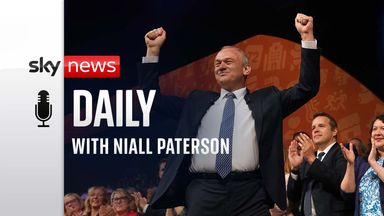Bridget Phillipson, the education secretary, is one of the new cabinet’s more assured performers – a figure who epitomises the pragmatic and serious intent of this Labour government. From what’s been seen of her in action thus far, she does not seem to panic easily. Nonetheless, a looming crisis in universities may prove to be the country’s greatest financial mess since the post-Ukraine energy price shock.
What’s happening in universities?
English universities are running out of money and are looking to the government for assistance (those in Scotland, Wales and Northern Ireland are overseen by the devolved administrations, but may face similar problems). Tuition fees for “home” (ie UK) students have been frozen since 2017 with a cap of £9,250pa. In the intervening period, inflation has pushed costs much higher – wages, energy, land for new buildings – while higher interest rates may have added to pressure on those with outstanding debts.
There is a limit to how far any shortfalls can be made up through efficiency savings or higher fees for overseas students. Indeed, the prospect for increasing the numbers of lucrative undergraduates recruited from the likes of China, India or Nigeria is an uncertain one given the intense political pressure to reduce migration. This autumn has seen home student numbers at a record high, and those from abroad coming down.
What do universities say?
Universities UK, representing 141 higher education institutions, wants higher tuition fees for home students so that the sector doesn’t “slide into decline”. It says universities “lose money” teaching UK students by an amount that widens every year. “If investment in teaching students had kept up with inflation, funding per student would be in the region of £12,000-£13,000,” it says.
What are the other options?
Ministers could take international students out of the mainstream migration numbers, as many have urged, to remove a statistical distortion (given that they usually return home). That would make it politically easier to step up recruitment of students from abroad, although there is some persistent scepticism about quite how genuine some of the students are.
The government could also increase class sizes and dilute the ratio of tutors to students, though the prospective effects on the quality of education, and value for money for students, is difficult to assess. A further drive to reduce costs could also seem attractive, with salaries and final salary pensions coming under severe budgetary pressure.
Could some universities go bust?
That’s an option no one wants to see, because it would cause such widespread disruption to education and future life chances, as well as local communities and councils having to deal with the fall-out of redundancies and loss of relatively well-paid professional jobs. In many areas the local university is not only a matter of great civic pride but an engine for urban regeneration and a way to reduce the drain of local skills and talents to London.
Some institutions could be reorganised and rationalised on a corporate-style merger basis, cutting overheads and consolidating debts, possibly with Treasury assistance. In any case, it would be messy; and wide scale closures would also impact the balance of payments, as universities are a major export earner.
What’s the government doing about it?
Phillipson has made it clear she is well aware of the situation; her department and the Treasury must know which are the institutions at risk and are probably drawing up contingency plans accordingly. Given what we know about the parlous state of the public finances, it doesn’t seem likely that Rachel Reeves will be able to fund huge rescue packages. Indeed, it may well be that some places do go under for good, serving as a cautionary example to others. If that happens, the obvious temptation will be to blame the Conservatives for allowing the university sector to end up in such an unsustainable position.
Are there any votes in it?
Worryingly for Keir Starmer and Phillipson, yes – and quite a lot more given Labour’s manifesto pledge to give 16- and 17-year-olds the vote at the next general election. These sixth formers will be faced with higher tuition fees, inferior teaching and less choice than their forebears, and are unlikely to thank the party responsible.
What does the opposition say?
Some on the right of the Conservative Party would be happy to see what they regard as inferior institutions go bust, nor would they mind the loss of some foreign students. They tend to think that too many of the cohort go to university anyway, and favour a return to vocational and technical qualifications. Such views might be popular with older voters, but the newly-enfranchised and angered students won’t be attracted towards the Tories or Reform UK who share that outlook.
Liberal Democrats are still in a poor position to capitalise on the issue given their “betrayal” of a 2010 election pledge to scrap fees and instead trebling them. Nationally, that leaves the Greens and the emerging Corbynite-independent leftist coalition ideally placed to grab some votes in areas with a high concentration of students.
Disclaimer: The copyright of this article belongs to the original author. Reposting this article is solely for the purpose of information dissemination and does not constitute any investment advice. If there is any infringement, please contact us immediately. We will make corrections or deletions as necessary. Thank you.



